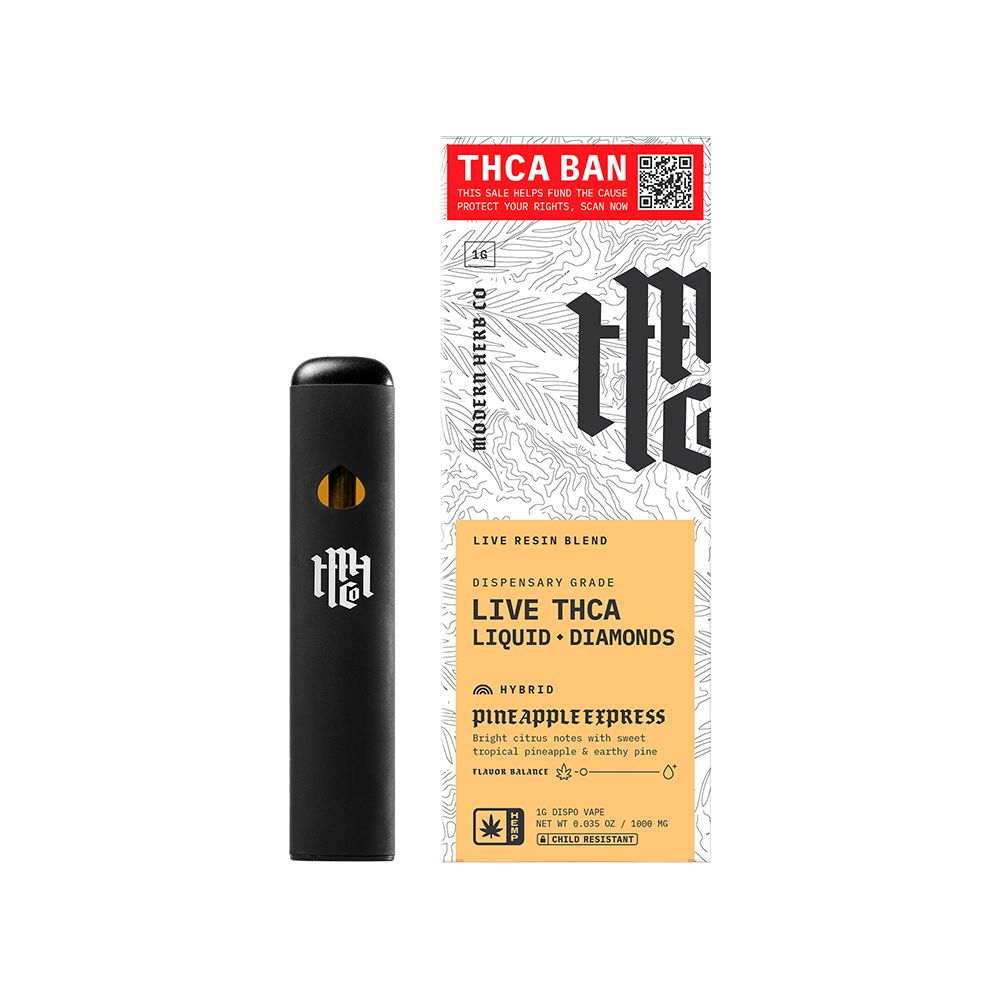The Controversy Surrounding Pastors Who Vape

If you've ever found yourself in a quiet moment of reflection, pondering whether it's acceptable for religious leaders to embrace the world of vaping mods, know that your contemplation is shared by many.
Like a friend who leans in during a heart-to-heart conversation, I too have felt drawn to understand where vaping aligns with the moral compass for those of us walking the Christian path.
Did you realize that nearly 9 million adults across the U.S. are filling their lungs with vapor from e-cigarettes? This article isn't just another set of words on a page—it's an earnest journey into the crux of this contemporary conundrum, weaving together health considerations and biblical principles.
We're going to unpack varied viewpoints and authentic experiences that offer clarity on this complex issue. So relax, take a breath (vapor-free or not), and join me as we delve into some truly eye-opening revelations!
Key Takeaways
- There is a heated debate within Christian communities about whether vaping should be considered a sin, with no consensus due to the Bible not mentioning e-cigarettes.
- Health risks associated with vaping include lung damage and heart problems, and nicotine in vape pens is highly addictive, leading both to physical dependency and mental health challenges.
- Some churches view vaping as an acceptable part of worship, while others outright forbid it among congregants and leaders based on its potential harm and addiction risks.
- Open discussions in church environments are encouraged to respectfully navigate the issue of vaping; these may include educational workshops or support groups for those struggling with addiction.
- Individual beliefs and convictions about vaping vary greatly, making it important for church members to respect diverse viewpoints while considering personal well-being within their faith practices.
The Controversy Surrounding Pastors Who Vape
The debate over whether vaping is a sin for Christians has sparked controversy within the church community. Opinions from pastors and religious leaders vary on the moral implications of vaping and its connection to biblical principles.
The debate over whether vaping is a sin for Christians
Throughout Christian communities, voices rise on both sides of the vaping issue. Some believers argue that since the Bible doesn't directly mention e-cigarettes, they can't be classified as sinful.
They point out that vaping could be a lesser evil compared to traditional smoking and may help some people quit tobacco altogether.
Others counter with strong conviction, believing anything that could harm the body—an extraordinary creation by God—should be avoided. This view suggests that intentionally inhaling substances designed to addict violates biblical teachings about stewardship over one's health.
Pastors who vape find themselves at the heart of this controversy, often questioning how their personal choices impact their spiritual leadership and influence within the church. Moving past this hot topic, we dive into what pastors and religious leaders are saying about it all.
Opinions from pastors and religious leaders
Considering the debate over whether vaping is a sin for Christians, it's essential to take into account the opinions from pastors and religious leaders. Many religious leaders emphasize the need for discernment and personal responsibility when it comes to vaping.
Some advocate for moderation and argue that vaping can be permissible if not done in excess or harmful to one's health. Others caution against engaging in any activity that could potentially harm oneself or others, citing biblical principles of caring for one's body as a temple.
While some pastors are open to discussions about the morality of vaping, others take a more stringent stance, linking vape use with addictive behaviors and emphasizing abstinence from substances like nicotine altogether.
Connection to biblical principles
The connection to biblical principles regarding vaping is an important aspect for many Christians. Understanding the teachings of the Bible can help individuals navigate through controversial topics like vaping and make informed decisions.
It's essential to seek wisdom in deciphering how our actions align with God's will, especially when it comes to matters that affect our health and well-being.
Examining biblical principles allows us to reflect on the values of self-control, stewardship of our bodies, and considerations for others. As portable vape users, being mindful of these principles can lead to responsible choices in relation to nicotine use and its impact on ourselves and those around us.
Effects of Vaping on Health and Addiction
Vaping can have potential health risks, including lung damage and heart problems. Nicotine in e-cigarettes also poses an addictive threat to users, leading to dependency and withdrawal symptoms.
Personal testimonies highlight the struggles of those trying to break free from vaping addiction.
Potential health risks and dangers of vaping
Vaping poses serious health risks, including lung damage, heart problems, and potential brain development issues in teenagers due to exposure to nicotine. It can also increase the risk of respiratory infections and worsen pre-existing conditions such as asthma.
The chemicals in vaping liquids can be harmful when inhaled into the lungs, leading to long-term health consequences.
Nicotine is highly addictive and can lead to dependence on vaping products, making it challenging for users to quit. This addiction affects both physical health and mental well-being.
Personal testimonies from individuals struggling with vaping addiction highlight the difficulty of breaking free from its grasp.
The addictive nature of nicotine
Nicotine, found in vape products, is highly addictive. It stimulates the release of dopamine in the brain, creating a sense of pleasure and reward. This leads to a craving for more nicotine and can make it challenging to quit vaping once you start.
The chemical hooks in nicotine can lead to dependence and withdrawal symptoms when attempting to stop using vape products. Addiction is a serious concern for those who vape regularly, affecting their physical health and mental well-being.
Understanding the addictive nature of nicotine is crucial in making informed decisions about vaping and its impact on our lives.
Personal testimonies and experiences of those struggling with vaping addiction
I've spoken with several individuals who have shared their personal stories about struggling with vaping addiction. Here are some of the experiences they've shared:
- One individual spoke about the initial appeal of vaping and how it quickly escalated into a daily habit, making it difficult to go without vaping for even a short period.
- Another person described the physical and mental challenges of trying to quit vaping, including intense cravings and mood swings.
- A different individual talked about feeling isolated and judged by their community as they grappled with their addiction to vaping.
- Someone else shared the financial strain that resulted from their vaping habit, as well as the impact it had on their relationships and overall well-being.
- Finally, another person discussed the struggle to find effective support and resources within their religious community while dealing with their addiction to vaping.
Church Perspectives and Approaches to Vaping
Some churches embrace vaping as a form of alternative worship, while others discourage or forbid it among members and leaders. To learn more about the different perspectives within the church community, keep reading!
Churches that embrace vaping as a form of alternative worship
Some churches have embraced vaping as an alternative form of worship, incorporating it into their religious gatherings. Congregants use e-cigarettes and desktop vaporizers during prayer sessions and worship services, considering it a way to connect with spirituality.
This unique approach has sparked discussions on the intersection of faith and modern practices, challenging traditional views on smoking and redefining what constitutes sacred rituals within the church community.
Moving forward to "Churches that discourage or forbid vaping among members and leaders," let's explore differing perspectives on this controversial topic.
Churches that discourage or forbid vaping among members and leaders
Some churches firmly discourage or even forbid vaping among their members and leaders. These congregations believe that vaping goes against the teachings of their faith, citing concerns about addiction, health risks, and setting a negative example for others.
Leaders in these churches may emphasize the importance of honoring one's body as a temple and being mindful of the impact of personal choices on the community.
Leaders within these church communities often offer support and guidance to those struggling with vaping addiction. They seek to foster an environment where individuals feel valued and supported in making healthier choices.
Discussions on how to approach the topic within the church community
When considering the diverse perspectives on vaping in the church community, it's important to establish a respectful and open dialogue.
- Foster open forums or discussion groups where members can express their thoughts and concerns about vaping in a safe environment.
- Invite knowledgeable speakers to educate the congregation about the health risks and ethical implications of vaping.
- Consider forming a committee dedicated to researching and discussing vaping from theological, ethical, and health perspectives.
- Encourage pastoral leadership to address vaping concerns in sermons or small group discussions, emphasizing love, understanding, and support for those struggling with addiction.
- Utilize biblical principles to guide conversations regarding personal responsibility and consideration for others' well-being within the church community.
Concluding Thoughts
As we conclude, the controversy surrounding pastors who vape continues to ignite discussions within the church community. It's important to approach this topic with open dialogue and understanding, encouraging responsible and educated decisions regarding vaping while respecting individual beliefs and convictions.
Open dialogue and understanding within the church
It's essential to create open dialogue and understanding within the church community regarding the controversial topic of vaping. We can engage in respectful conversations that honor differing beliefs and seek common ground.
Sharing personal experiences, concerns, and knowledge about vaping allows for a more comprehensive understanding of each other's perspectives.
Encouraging an environment where individuals feel heard and valued regardless of their stance on the issue fosters unity and compassion within the church. Through open dialogue, we can cultivate empathy, mutual respect, and a supportive space for everyone to navigate their views on vaping in relation to their faith.
Encouraging responsible and educated decisions regarding vaping
When making decisions about vaping, it's crucial to seek out reliable information and consider the potential impact on health. Researching the effects of vaping and understanding the addictive nature of nicotine can help individuals make informed choices.
It's important to respect personal beliefs and values while also being mindful of the potential consequences on one's well-being.
Empowering individuals with knowledge allows for responsible decision-making regarding vaping. Being aware of both the health risks and individual convictions can lead to thoughtful choices that align with personal values and prioritize overall well-being.
Importance of respecting individual beliefs and convictions
Encouraging responsible and educated decisions regarding vaping is essential, but it's equally important to understand and respect the diverse beliefs and convictions of individuals within the church community.
Each person's faith journey is unique, and their perspectives on vaping may be influenced by deeply held religious convictions. By acknowledging and respecting these differences, we can foster an environment of understanding and empathy, allowing for open discussions that honor everyone's viewpoints.
Respecting individual beliefs and convictions enhances the sense of inclusivity within the church community, creating a space where individuals feel valued regardless of their stance on vaping.
Conclusion
In conclusion, the debate over pastors who vape continues to stir strong opinions within religious communities. Personal experiences and theological perspectives shape this ongoing controversy.
Exploring health effects and addiction challenges brings a deeper understanding of the complexities involved. It is important for churches to foster open dialogue and respect varying beliefs on this divisive issue.
FAQs
1. Why is there controversy over pastors who vape?
The controversy comes from different views within Christianity and religion about whether vaping, like smoking, goes against religious beliefs.
2. What do Christians think about vaping?
Some Christians feel that vaping should be avoided as it may harm the body while others see it as a personal choice not directly addressed by their faith.
3. Do all religions view vaping the same way?
No, different religions and theological stances have varying opinions on the use of ecigarettes and nicotine; some are strict while others are more lenient.
4. Should religious leaders vape in public?
This question sparks debate because some people believe that religious leaders, due to their influence, should set an example when it comes to matters of health and morality like smoking or vaping.






![Vessel Helix Pipe [Copper] - Headshop.com](http://www.headshop.com/cdn/shop/files/ad3c0443-b76d-4fe5-84b8-a617dd50a950.jpg?v=1747419387&width=900)
![Vessel Helix Pipe [Copper] - Headshop.com](http://www.headshop.com/cdn/shop/files/7b0e06e3-9106-4684-80e4-408362c34085.jpg?v=1747419388&width=1000)
![Vessel Wood Vape Pen Battery [White/Beechwood] + - Headshop.com](http://www.headshop.com/cdn/shop/files/4ecd5d0f-363a-454e-a7a0-229fb93bf456.jpg?v=1725470645&width=900)
![Vessel Wood Vape Pen Battery [White/Beechwood] + - Headshop.com](http://www.headshop.com/cdn/shop/files/d232e493-09e6-4574-b44c-3e2bde9425b4.jpg?v=1725470647&width=1000)


![Vessel Compass Apex Charger [Black] - Headshop.com](http://www.headshop.com/cdn/shop/files/f10e6bf4-6ce7-4a59-a50e-a4184f069754.jpg?v=1729115238&width=900)
![Vessel Compass Apex Charger [Black] - Headshop.com](http://www.headshop.com/cdn/shop/files/dce98c70-346c-405f-aca8-d59c7feed96d.jpg?v=1729115240&width=1000)

![Pipe by Vessel [Rose Gold] Pipe by Vessel [Rose Gold]](http://www.headshop.com/cdn/shop/files/Pipe_Rose_Gold_Closed.jpg?v=1744306576&width=600)

![Vessel - Mill [Beechwood] Vessel - Mill [Beechwood]](http://www.headshop.com/cdn/shop/files/MILL_GUNMETAL_BEECH_COLLAPSED_FRONT_800.jpg?v=1744308513&width=600)
![Vessel - Cone [Onyx] Vessel - Cone [Onyx]](http://www.headshop.com/cdn/shop/products/6f51074a-2173-4ab4-876d-22a84764eb5d.png?v=1679517316&width=600)
![Vessel - Air [Jade] Vessel - Air [Jade]](http://www.headshop.com/cdn/shop/products/7cd436a1-b1f0-4e01-9e52-050ad7140b56.png?v=1679506090&width=600)
![Vessel Helix Pipe [Black] - Headshop.com](http://www.headshop.com/cdn/shop/files/Pipe_Black_Angle.jpg?v=1744306153&width=900)
![Vessel Helix Pipe [Black] - Headshop.com](http://www.headshop.com/cdn/shop/files/Pipe_Black_Closed.jpg?v=1744306155&width=1000)
![Vessel Compass Rise Vape Bar [Crimson] - Headshop.com](http://www.headshop.com/cdn/shop/files/fc3fd52a-2783-4fac-bd38-bc4f2013a889_5466b32d-da71-427f-8737-bf7d7f5f2c77.jpg?v=1735253136&width=900)
![Vessel Compass Rise Vape Bar [Crimson] - Headshop.com](http://www.headshop.com/cdn/shop/files/66947a99-195c-4deb-b29e-03443ebebd5a_32c35e3d-ba1b-4d4d-a879-3886d37bddf7.jpg?v=1735253136&width=1000)


![Vessel - Ember [Gold] Astray - Headshop.com](http://www.headshop.com/cdn/shop/files/20220106_EMBER_BRASS.jpg?v=1744309601&width=900)
![Vessel - Ember [Gold] Astray - Headshop.com](http://www.headshop.com/cdn/shop/files/20220106_EMBER_BRASS_WITH_AIR.jpg?v=1744309601&width=1000)














![Pipe by Vessel [Gunmetal]](https://cdn.shopify.com/s/files/1/0585/8462/9443/files/Pipe_Gunmetal_Angle_500x500.jpg?v=1744306453)







